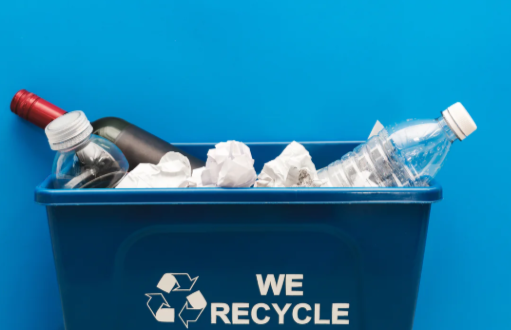Polypropylene, commonly abbreviated as PP, is one of the most widely used plastics today. From yogurt containers and bottle caps to automotive parts, PP plastic is everywhere. However, with its immense utility comes the responsibility of managing its disposal and recycling effectively. This blog explores the PP Recycling process and highlights its significant environmental benefits.
What is Polypropylene (PP)?
Polypropylene is a thermoplastic polymer that is valued for its durability, lightweight properties, and versatility. While these features make it super useful in various applications, they also contribute to the mounting issue of plastic waste. Thankfully, PP is recyclable, making it an essential candidate for reducing plastic pollution.
How is PP Recycled?
The recycling process for polypropylene involves multiple steps to ensure that it is effectively transformed into reusable material. Here’s how it works:
1. Collection and Sorting
The first step in the PP recycling process is collecting discarded polypropylene items. These are typically sourced through curbside recycling programs or industrial waste streams. Once collected, sorting begins. Advanced machinery is employed to separate PP plastics from other types of plastics and contaminants to ensure a pure recycling stream.
2. Cleaning and Shredding
Once sorted, the PP items go through a cleaning process to remove any dirt, grease, or leftover materials. Afterward, the cleaned PP is shredded into small pieces or flakes, which makes it easier to process in the next stages.
3. Melting and Reprocessing
The shredded PP flakes are then melted down under controlled temperatures. The molten plastic is filtered to remove any remaining impurities. After melting, the polypropylene is turned into pellets or granules, which serve as the raw material for manufacturing new PP products.
4. Production of New Materials
The recycled polypropylene pellets are used to manufacture countless products, such as containers, automotive parts, packaging materials, and more. What’s great is that recycled PP maintains much of its original quality, making it a sustainable alternative to virgin plastic.
Environmental Benefits of Recycling PP
Recycling polypropylene isn’t just a mechanical process—it’s an environmental necessity with several powerful benefits:
1. Reduction in Plastic Waste
Plastic waste is one of the largest contributors to global pollution. Recycling PP directly reduces the volume of plastic ending up in landfills and oceans. Statistics show that millions of tons of plastic waste are generated annually, and a significant fraction of this can be attributed to polypropylene. By recycling, we can curb this trend.
2. Energy Savings
Producing recycled polypropylene requires significantly less energy compared to manufacturing virgin PP from raw petroleum. This reduction in energy use translates to fewer greenhouse gas emissions, which directly contributes to combating climate change.
3. Conservation of Resources
Polypropylene is derived from non-renewable resources like crude oil and natural gas. Recycling PP helps conserve these valuable resources, ensuring their availability for future generations.
4. Support for Circular Economy
By recycling PP and using it to create new products, we move closer to a circular economy where materials are reused repeatedly rather than discarded. This closed-loop system minimizes waste and promotes sustainability in the long term.
5. Community and Economic Impact
Recycling programs create jobs and foster environmental awareness in communities. Additionally, businesses that use recycled materials often benefit from cost savings while meeting regulatory requirements and consumer demand for eco-friendly products.
The Bigger Picture
While recycling polypropylene is undoubtedly beneficial, it is crucial to recognize that recycling alone cannot solve the global plastic crisis. Reducing consumption, reusing materials, and supporting policies aimed at sustainable plastics management are essential components of a broader solution.


